
Food myths debunked
Over the years, myths and misconceptions have arisen about certain foods and scary diseases. To make matters worse, false and undeserved claims often end up tainting the reputations of favorite foods, some of which turn out to be good for you. One large study, for instance, found that women who drank up to four cups of coffee a day cut their risk of diabetes by 47 percent.
Here’s the truth about some common-and stubborn-food myths.
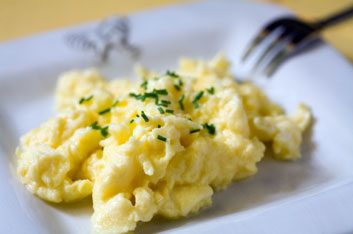
1. Myth: Eggs are bad for you
For years, nutrition experts cautioned that eggs were unhealthy. After all, those gifts from the henhouse are one of the richest sources of cholesterol in the human diet. Since cholesterol plugs up arteries, eggs must raise the risk of heart attacks and strokes, right?
Wrong. Large studies suggest that this theory is full of feathers. For example, the famous Framingham Heart Study, which first showed that high blood cholesterol causes heart attacks, found no connection between eating eggs and cardiovascular disease.
How could that be? It turns out that only about 25 percent of the cholesterol in your blood comes from food. The other 75 percent is manufactured by the liver, which produces lots of cholesterol when you eat cheeseburgers and other sources of saturated fat-something eggs are low in. Eggs are also filled with useful nutrients that may offset any damage done by their cholesterol content, including unsaturated fat, folate and other B vitamins, and minerals.
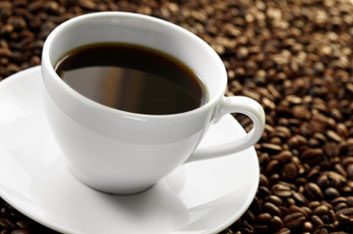
2. Myth: Coffee causes cancer
Coffee has been linked to cancer on several occasions over the past generation or so. In the late 1970s, for example, researchers reported that caffeine caused the growth of cysts in breast tissue. That finding raised concerns since women who frequently develop cysts often go on to have breast cancer. Then, in 1981, a Harvard study found an increase in pancreatic cancer among coffee drinkers.
However, other scientists later looked for links between coffee and these cancers, using superior research methods and studying larger groups of people. They found none. Likewise, major studies examining the risk of other cancers among coffee drinkers came up empty. In some cases, just the opposite appeared to be true. For instance, a review of 17 studies conducted from 1990 to 2003 found a 24 percent reduced risk of colon cancer among people who regularly sipped coffee and tea.
Studies have also shown in recent years that drinking coffee appears to offer some protection against other conditions, including Parkinson’s disease and type 2 diabetes (although in order to substantially lower your risk for the latter, you may need to imbibe six cups per day).

3. Myth: To protect your heart, drink red wine or don’t bother filling your glass
Some scientists have speculated that the French people’s love of wine, especially red wine, at least partly explains their superior cardiovascular health. It seems logical, since red wine contains high levels of a phytochemical called resveratrol, which acts as an antioxidant and reduces inflammation. (What’s more, recent research offers intriguing clues that resveratrol may actually slow the aging process.)
As it turns out, though, it’s the alcohol in red wine-and white wine and beer-that’s responsible for most of its heart-related benefits. Large population studies suggest that most people enjoy at least some health benefits from sipping any form of alcohol in moderation.
Alcohol-no matter how you drink it-raises HDL ( “good”) cholesterol and seems to make blood less likely to clot. If you enjoy alcoholic beverages, most health authorities agree that having no more than a drink or two per day (one for women, two for men) may offer some benefits and probably can’t hurt.
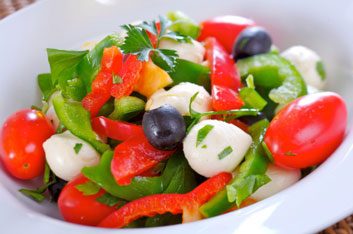
4. Myth: Fat-free and low-fat foods are always healthier than full-fat varieties
When it comes to dairy products and some other foods, such as meat, you can reliably adopt a simple rule: The less fat, the better. But that’s not always the case with other foods. Take salad dressing. If you’re trying to lose weight, switching from an oil-based dressing to a low-fat or fat-free dressing may make sense. But sparing yourself 100 calories or so (per 2 tablespoons) comes at a cost.
For starters, salad dressings made with healthy monounsaturated fats, such as olive or canola oil, may help prevent heart disease and other conditions. What’s more, a recent study shows that you may be missing out on important disease protection by going oil-free. That’s because without some fat in the meal, your digestive tract won’t absorb many of the nutrients in a salad.
There’s no need to drown your greens in oil, however; 1 or 2 tablespoons will get the job done.
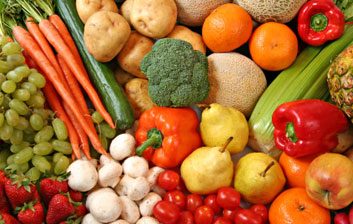
5. Myth: Raw fruits and vegetables are more nutritious than cooked ones
The theory that cooking foods makes them less nutritious is a bit half-baked. Raw food advocates note that heat destroys enzymes in foods that make them more easily digested. While that’s true, cooking also breaks down fiber, making it easier for your body to process. Subsisting primarily on raw fruit and vegetables could even backfire if your goal is to get healthier.
German researchers studied 201 men and women who adopted raw-food diets and found that their total cholesterol and triglyceride levels dropped. However, the raw-food diet also lowered their HDL cholesterol. Meanwhile, their levels of homocysteine (an amino acid linked to heart attacks and strokes) rose.
Scientists have discovered in recent years that cooking actually boosts levels of important compounds in some fruits and vegetables. For instance, ketchup contains five to six times more of the antioxidant lycopene than raw tomatoes do, making it much more useful against diseases such as prostate cancer.
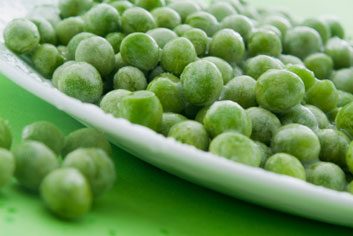
6. Myth: Frozen and canned fruits and vegetables are less nutritious than fresh ones
Fresh fruits and vegetables are more nutritious than the frozen and canned variety-at the instant they are picked. However, the foods you find in the produce section have often had a long journey from the moment they were packed in crates. During shipping and storage, natural enzymes are released in fresh fruit and vegetables that cause them to lose nutrients.
By contrast, food processors quick-freeze fresh-picked produce, which preserves much of its vitamin and mineral content. A University of Illinois study found, for instance, that frozen beans retained twice as much vitamin C as fresh beans purchased in a grocery store. Contrary to common belief, canning does not deplete fruit and vegetables of significant amounts of nutrients either. While heat processing may reduce levels of some vitamins, certain canned foods-such as spinach and pumpkin-actually have higher levels of vitamin A than fresh versions.
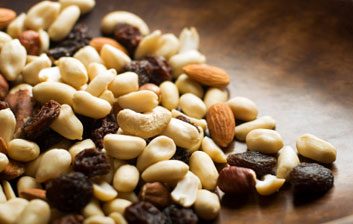
7. Nuts are too fattening-eat them sparingly
To be sure, nuts contain a lot of fat, but it’s mostly the good kind. Dry-roasted peanuts, for example, have three to four times more heart-healthy monounsaturated fat than saturated fat. Recent research suggests that eating nuts as part of a healthy diet may even help you lose weight.
Researchers believe that the fat in nuts helps people feel full, and the protein may use up calories as it digests. What’s more, a study by British researchers shows that high-protein foods help trigger the release of a hormone known to reduce hunger.
Nuts’ high concentration of healthy fats makes them a guilt-free way to satisfy hunger without raising cholesterol or other blood fats. What’s more, nuts are an excellent fiber source and provide a long list of nutrients, including vitamin E, magnesium, folate, and copper.
Related:
• 10 foods you should eat every day
• 5 ways to fall in love with cooking
• 4 reasons why you overeat
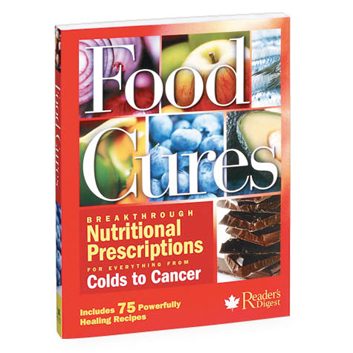
Get more Food Cures
Here is your definitive guide to help heal, ease, or prevent 57 ailments with common foods and nutritional supplements. Settle nausea with ginger. Give your memory a boost with oatmeal. Lower your blood pressure with bananas. You’ll find dozens of detailed food “prescriptions” to help treat everything from allergies to migraines to ulcers and more. Plus, you’ll be amazed at how many favourite foods are on the menu: beer, red wine, dark chocolate, shrimp, guacamole, peanut butter…That’s because healing yourself with food is not about eating less, it’s about eating more. And with 75 delectable recipes, eating for health has never been more delicious!
Get it now in the Best Health Store >>
